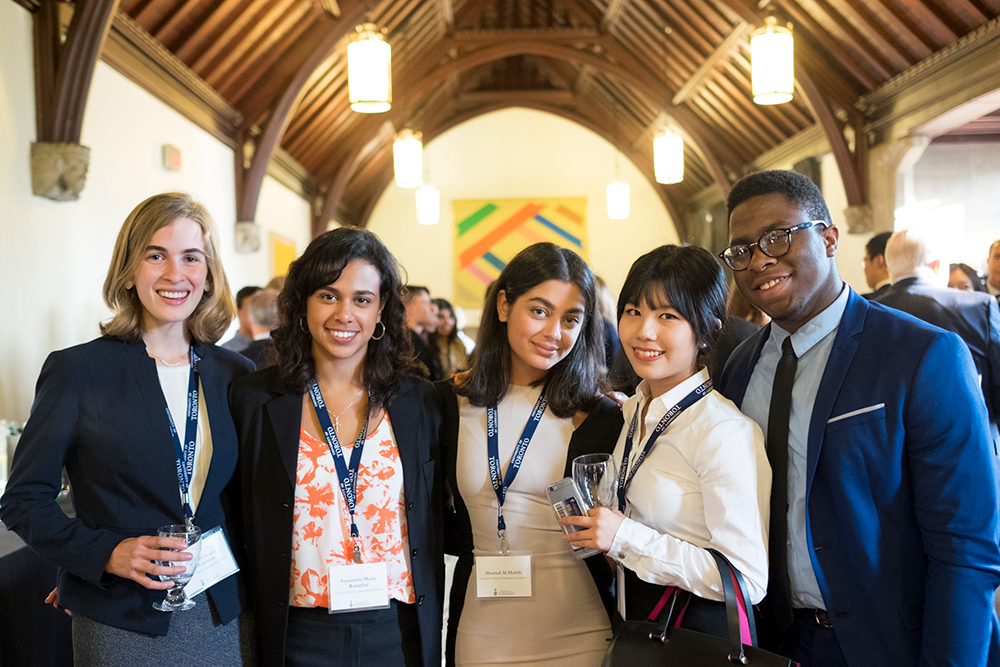As Canadians contemplate a post-pandemic recovery, impending geopolitical shifts have huge implications for the country’s prosperity. From my perspective as president of a university that attracts significant numbers of faculty and students from abroad, I can confirm that the playing field is already shifting.
During the years of the Trump administration and the Brexit debate, the United States and Britain both turned inward, adopting a number of measures seen as unfriendly to immigration. Canada’s attractiveness as a destination for talented individuals increased as a result.
Enlightened public policies helped employers across our economy capitalize on this shift. Canadian universities succeeded in attracting research expertise from around the world, and at U of T the number of talented international students grew to comprise one-quarter of our student body.
That may soon change, now that President Biden is in office and the Brexit negotiations are resolved. Strategic immigration policies will remain critical for Canada, but they are no longer enough. The individuals we seek to attract and retain, including Canadians, are drawn to places that offer opportunity and are willing to make big bets on promising new areas of economic activity.
To stand out in this global competition, Canada could create a ‘talent moonshot,’ one that’s strongly funded and co-ordinated across the public and private sectors. Our goal: recruit the world’s most outstanding scientists, engineers, artists and scholars to develop made-in-Canada solutions to global challenges, working alongside those who are already here. We could, for example, leverage Canada’s remarkable strengths in life sciences and artificial intelligence to transform health care and propel the new bioeconomy.
We could also draw inspiration from President Biden’s own playbook. This includes major investments in both private and public sector research and development, innovation partnerships that connect producers of know-how to homegrown companies that can harness breakthrough technologies, and public procurement that leverages the domestic market to support this innovation-based economic activity.
At the same time, climate change, the plight of Indigenous peoples and systemic racism have made inclusion, access and sustainability high priorities for mobile talent. This puts the focus squarely on the quality and fairness of our public health and education systems, as well as on affordable housing and daycare, and livable communities.
Closer to home, our memorandum of agreement with the University of Toronto Faculty Association continues to be a key factor in our success. It has ensured that we offer attractive salaries, benefits and working conditions while enabling us to recognize individual excellence and attract top talent to join us.
Our future prosperity depends on our capacity to invest in people, communities and opportunity, through a comprehensive strategy to maintain and enhance Canada’s and U of T’s talent advantage. We need to be bold and think big.
Recent Posts
U of T’s Feminist Sports Club Is Here to Bend the Rules
The group invites non-athletes to try their hand at games like dodgeball and basketball in a fun – and distinctly supportive – atmosphere
From Mental Health Studies to Michelin Guide
U of T Scarborough alum Ambica Jain’s unexpected path to restaurant success
A Blueprint for Global Prosperity
Researchers across U of T are banding together to help the United Nations meet its 17 sustainable development goals







3 Responses to “ Attracting Top Talent to Canada ”
Three points that this article could address further:
- Attracting top talent should work alongside nurturing strong talent.
- Evidence is missing for immigration barriers being a loss for talent.
- Other than talent in AI and health sciences, do we need talent in the basic sciences whose economic potential are less evident?
And I really agree with the statement "this includes major investments in both private and public sector research and development, innovation partnerships that connect producers of know-how to homegrown companies that can harness breakthrough technologies, and public procurement that leverages the domestic market to support this innovation-based economic activity" because to me an investment in the knowledge-based economy is a long-term investment.
Canada needs to face the fact that Americans do not want to live in Canada. And we cannot clearly justify drawing in the brightest from lower-income countries when it disadvantages those countries. So what remains is to use our own strengths. Canada has top-tier education, engineering and health, along with many other disciplines. Alberta, for example, could stabilize its economy by creating a genomics institute. It could add a vaccine institute with a level 4 lab and an AI hub -- all of which could collaborate with universities in each province. Let the international talent follow. We have not been able to even coordinate medical data across our own country. If such institutes could get it done, we could become a medical powerhouse.
From Maria (Moncada) DiDanieli (BSc 1992 St. Mike's):
I applaud efforts to attract international talent in order to optimize our potential for developing solutions to global challenges. But I feel we have more than adequate talent within our own country, and that leveraging this talent should be our first priority.
Improving equitable opportunities for education, training and advancement would be job one. Building programs that send our talent to other countries to collaborate and learn from thought-leaders and then bring this knowledge home to leverage in locally sustainable strategies is another approach.
Finally, we could expand our talent pool by lowering barriers for foreign-trained professionals to ply their trades upon immigrating to Canada, rather than relegating them to work that does not reflect their training and knowledge. Canada has world-class talent already. We need to get better at recognizing, cultivating and rewarding this talent. I feel universities should be stronger advocates for this.